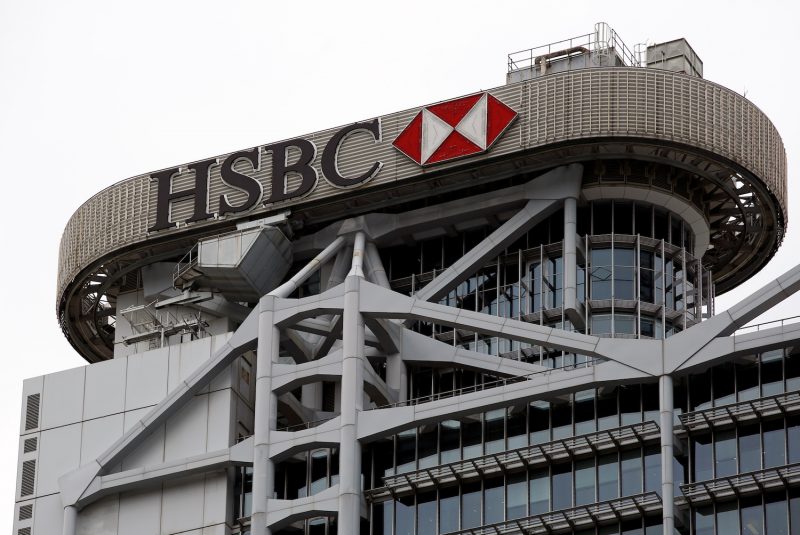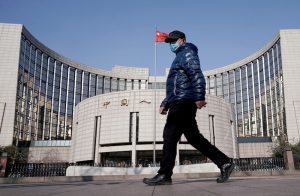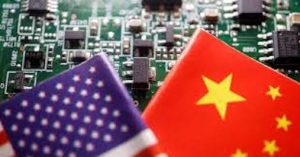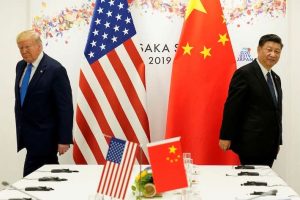(AF) HSBC has been performing a dance between America and China. After all, it is a truly international bank that is caught in the crossfire of a widening conflict that spans across trade, tech and finance.
It is not the only one out there, but its global exposure has probably made it more difficult than for any other banking group. The fact that HSBC’s most profitable business is in Hong Kong, the West’s prominent pressure point against Beijing, hasn’t exactly helped.
There was no choice for the bank but to support China’s new security law for the city, which moved HSBC squarely into Washington’s crosshairs.
The subsequent sanction salvo against Chinese and Hong Kong officials and enterprises leaves ample room for the bank to be tripping up. There is likely to be more where that came from, and it could well include HSBC itself, even though it is still a banking behemoth headquartered, listed and regulated in the United Kingdom.
At the same time, HSBC isn’t exactly in the good books with Beijing. It is being accused of cooperating with investigations into Huawei’s violation of the US sanction regime on Iran. The bank is one of the lenders to the Chinese tech company, and as we are all aware, the founder’s daughter and chief financial officer has been held in Canada for the past two years, with the uncomfortable prospect of being extradited to the US to stand trial.
ALSO SEE: China Will Extend IPO Reforms to Other Markets When Appropriate: Xinhua
The bank is between a rock and a hard place. More US sanctions against China would be lethal, as it is almost impossible to untangle HSBC’s relationships with a wider circle of Chinese companies, particularly state-owned entities.
Potentially heavy fines could rain down on the bank, on top of the ones already imposed on it. Even worse, access to US dollar clearance could be denied, which admittedly constitutes a nuclear option and is to be seen as a measure of last resort.
On the other hand, China could add HSBC to its own version of an unreliable entity list, a massive impediment to the bank’s ambitious plans in the Greater Bay Area, which has been designated as a key future market for growth. China and Hong Kong represent the lion share of HSBC’s overall business.
In any case, 80% of it is in Asia. It is unthinkable that the bank would voluntarily agree to a split of the business along the fault lines of an envisaged de-coupling between China and the West.
What to do?
HSBC could sell its American assets, but what is that going to do, as it would still be subject to an extra-territorialised US legal framework that covers financing activities and capital flows against the background of its numerous sanction regimes.
The debate has been re-ignited over whether the bank should re-domicile from London to Hong Kong, at least to escape the Bank of England’s regulatory body and reinstate its dividend for the sake of its lagging share price.
But changing the domicile to Hong Kong would make the bank even more vulnerable. The intrinsic value of HSBC is, after all, that it is a British global bank based in a Western jurisdiction and a business that to a large extent captures the only growth markets left in the world. It is a powerful proposition not to be underestimated. The bank without its China and Hong Kong business is a shadow of itself.
Also, its feature of being embedded in the Western- and US dollar-bloc is indispensable.
CHINA FINTECH: US May Blacklist China’s Ant Group
Still, some have suggested that HSBC will eventually become a Chinese bank, and it doesn’t sound unreasonable to think so. However, they propose that one of the mainland financial powerhouses buy it. The recent increase of Ping An Insurance’s stake to around 8% has fed the notion further.
But again, swallowing HSBC in whole is not in the eye of the beholder. In addition, the Bank of England would have a word to say about it and very likely block any such attempt.
So, are there any solutions in sight? Well, it is a given that, whatever is to be done, it will be a very fine line. Beijing could well settle on a compromise, as in no single Chinese institution will take over HSBC, but the shareholding structure could change to an extent that gives China more influence. Who is to say that privately held Ping An doesn’t increase its stake to 10%, the sovereign wealth fund CIC take another 10%, and yet another Chinese or China-related institution gobble up another 7%?
It would be an elegant way to have sufficient say at the board level and keep the embodiment as a London-based British global bank firmly intact. To be sure, nothing can protect HSBC entirely from the potential wrath of a divided world’s stakeholders, but management could steer toward such resolution to safeguard the bank’s business portfolio and, not to forget amid this quagmire, shareholders’ interests.
- Roland Hinterkoerner is a former banker and founder of www.expertise.asia.com
Note: This page was upgraded on July 21, 2022 to meet new style standards.
























